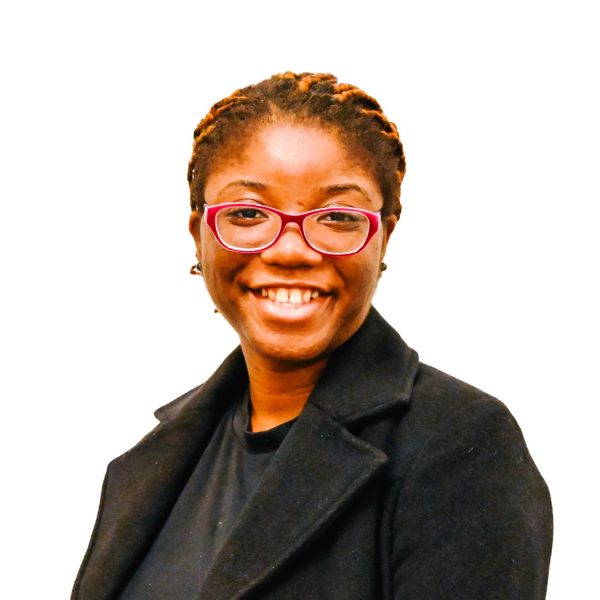Attending conferences is a powerful way to delve deeper into a subject matter, not just by acquiring knowledge, but also by connecting with individuals who share similar interests and engaging in stimulating conversations. This was true at the African Business Conference that recently took place at Harvard Business School.
On Feb. 16, a buzz of excitement filled the halls of HBS as the 26th annual conference, organized by the African Business Club, kicked off with the theme, “Africa Forward: Competing in a Global Era.” Across panel sessions and keynote speeches, the current realities in the continent, the emerging markets and the responsibility everyone must play in driving the continent forward were discussed.
Led and delivered by over 50 renowned experts—including Fola Fagbule, the deputy director and head of financial advisory at Africa Finance Corporation, and Chimamanda Ngozi Adichie, a critically acclaimed writer—these discussions and speeches captivated an audience representing more than 40 African countries, united by a shared vision for their continent’s progress.
Before the conference’s official commencement, attendees looking to become prospective students at HBS participated in an information session. During this session, the attendees were given a tour by current students, and following the tour, there was a panel discussion with alumni who spoke about their experiences and the benefits of being a part of the program.
Questions were asked by attendees, one of which was a question regarding choosing between career progression and pursuing a master’s in business administration. Members of the alumni gave their feedback based on the decisions they had to make, but reminded attendees that they needed to align their own decisions with their personal values and aspirations.
Moreover, the information session offered a unique opportunity to experience the case study method wherein successful companies and organizations are critically analyzed. Attendees delved into a critical analysis of Harambe, an organization founded by Okendo Lewis-Gayle, which has fostered an ecosystem of African innovators.
Attendees left the information session with more clarity about HBS, its rigorous demands and potential expectations awaiting them. This experience of critical thinking and analytical exploration served as the backdrop for the official conference, which began with the thought-provoking question, “What does it mean to be African?”
The inquiry led to a vibrant exchange of perspectives, and a poll was taken to capture the diverse responses that were given. For some, to be African meant to be bold and perseverant. For others, it was to possess a uniquely diverse cultural background and accent. To be African meant different things to everyone in the hall, revealing the multifaceted nature of Africa’s identity, and the underlying strength and resilience that unites a diverse group of individuals. Despite different interpretations, a shared sense of pride and heritage resonated throughout the conference halls.
Following the conference’s dynamic opening, keynote speakers delved into crucial topics, with Fola Fagbule and Farouk Gumel, the Group Executive Director and Head of Agri-Businesses for the Tropical General Investment Group, leading discussions on “Repositioning Africa as the Largest Free Trade Area.” Fagbule underscored the necessity of addressing macroeconomic variables driving economic markets across the continent, emphasizing the pivotal role they play in shaping regional trade dynamics. Gumel brought attention to the informal sector, pointing out profoundly the resilience and adaptability in navigating challenges it possesses.
He urged the audience to recognize the informal sector’s valuable lessons for the formal economy, further stressing the importance of realism in devising solutions. Both speakers echoed the need for critical interrogation and evaluation of all proposed ideas, cautioning how solutions that appear efficient may not be in practice. The session concluded with the call to action, “Be realistic,” reminding attendees to approach Africa’s economic challenges with both innovative and grounded realism.
Throughout the conference, attendees were presented with an array of panel sessions catering to an extensive range of interests and expertise. From discussions on climate tech, to navigating the fashion industry, there was something for everyone. Each panel session was led by individuals who are authorities in the various fields, offering invaluable insights and perspectives. The depth of the panel sessions underscored the conference’s commitment to providing a comprehensive and enriching experience for all attendees.
Finally, toward the climax of the conference, a session was led by Chimamanda Ngozi Adichie, with Junaid Belo-Osagie, one of the chairs of the conference, as the moderator. Adichie was prompted to reflect on her renowned TED talk, “The Dangers of a Single Story,” delivered Oct. 6, 2009, which critically examined the pervasive narratives shaping perceptions of Africa. She was asked about her opinions on whether Africans have transcended the limitations of the single narrative historically imposed on them.
In Adichie’s thought-provoking response, she acknowledged the strides made in reshaping global perceptions of Africa, highlighting the increasing recognition of African productions on the world stage. However, she cautioned against complacency, emphasizing that the journey toward dismantling singular narratives remains ongoing. She also urges that a deeper exploration of the meaning of value, and the metrics by which progress and success are measured, play key roles in this process.
At the conclusion of the conference, it was revealed that over 1,100 individuals registered for the event. The registration process drew praise from attendees, who lauded its simplicity and efficiency. This was attributed to Fatima Daif, who spearheaded the sponsorships team.
However, the ease of registration was just one facet of the conference’s success. Attendees who had come from various places, some from the African continent, to attend this conference praised the event as a true testament to meticulous planning and execution.
Conferences can be transformative experiences. They provide a platform for networking and building connections with industry leaders and meeting with fellow students worldwide. The good news is, these types of events tend to have discounted rates for students. Students of UMass Boston are encouraged to seize the opportunity to engage with global academic and professional communities, which will ultimately enrich students’ academic experience and broaden their professional horizons.

